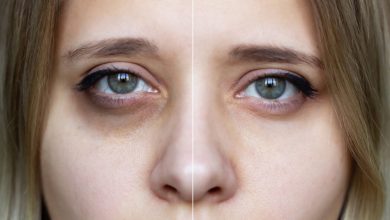We know that too much sugar isn’t good for us, but does sugar directly feed cancer? The short answer is yes – but as we just learned, sugar feeds EVERY cell in our bodies! This is where things get a little confusing…
There is an important difference between too much sugar in your diet creating an environment that may lead to more cancer growth and sugar directly feeding cancer cells leading them to grow.
Research has shown that sugar’s relationship to higher insulin levels and related growth factors is what may influence cancer cell growth the most, and increase the risk of other chronic diseases. So you can think of this as too much sugar creating a more toxic environment which can promote cancer growth.
Many types of cancer cells have plenty of insulin receptors, making them respond more than normal cells to insulin’s ability to promote growth.
Furthermore, obesity, diabetes, and chronic overeating have had a positive correlation to the growth and development of cancer cells but not necessarily a direct causal link. According to the Canadian Cancer Society, being obese can cause changes in hormone levels – such as sex hormones or insulin – which increase the risk of developing breast, colon or uterine cancer.
What You Should Do
Sugar has been related to a multitude of health problems, including diabetes, heart disease, stroke, immobility, elevated triglycerides and high blood pressure. A balanced lifestyle and cutting out refined sugars from soda and processed foods is a good start to decreasing your risk of cancer cell growth, as well as those other conditions.
1. Focus on a Balanced Diet
Consume your daily recommended amount of fruits and vegetables. Ensure you are getting enough fiber, iron, and protein in your diet. Do not drink fruit juices that have added sugar, and use natural sweeteners such as honey or stevia, and avoid high-fructose corn syrup and genetically modified sugar or sugar replacement such as aspartame.
2. Eat the Right Amount of Sugar
For women, have no more than six teaspoons (25 grams) of sugar each day, for men, have no more than nine teaspoons per day (37 grams); this equals to 100 calories for women and 150 for men. The majority of people in America eat over double that amount, averaging at around 22 teaspoons per day.
3. Watch for Hidden Sugars
Fructose, lactose, sucrose, maltose, glucose and dextrose are all forms of sugar you can find on the Nutritional Facts label on the back of your next meal.
Other natural sugars: Molasses, agave nectar, honey and maple syrup are natural sugars and contain antioxidants that can protect your body from cancer. But consume these in moderation, as they contain the same amount of calories as any other kind of sweetener.
4. Move More
Regular exercise decreases insulin resistance and helps you maintain a healthy body weight. Research suggests that lean, active people can consume a higher GI (Glycemic Index) diet without increased cancer risk.
Remember that finding something you enjoy and can do consistently is the key here – you don’t need to go start running marathons!




